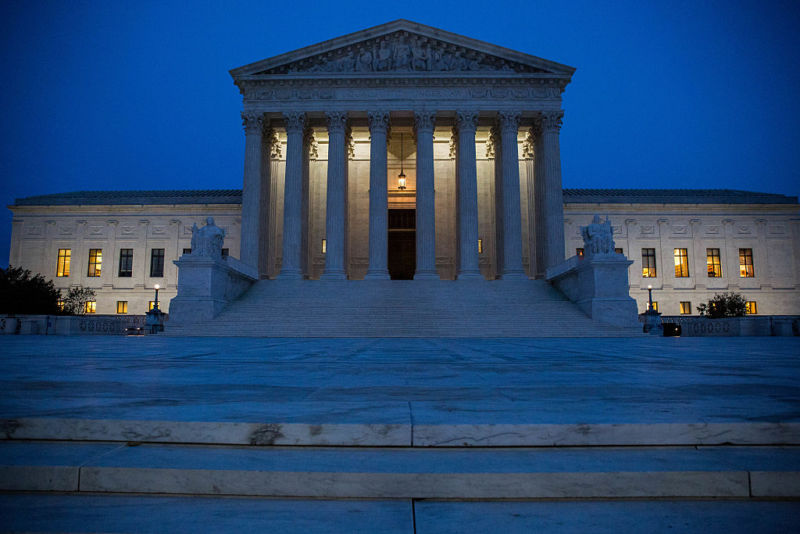Here’s a rough estimate of how many people recent SCOTUS rulings might kill

Three landmark Supreme Court decisions in 2022 have each been widely criticized by health experts as threats to public health, but a study released Thursday in JAMA Network Open modeled their collective toll. The study found that, by conservative estimates, the decisions will lead to thousands of deaths in the coming years, with tens of thousands more being harmed.
The three decisions included: one from January 13, 2022, that invalidated some COVID-19 workplace protections (National Federation of Independent Business v Department of Labor, Occupational Safety and Health Administration (OSHA)); one on June 23, 2022, that voided some state laws restricting handgun carry (New York State Rifle and Pistol Association Inc v Superintendent of New York State Police (Bruen)); and one on June 24, 2022, that revoked the constitutional right to abortion (Dobbs v Jackson Women’s Health Organization).
A group of health researchers, led by Adam Gaffney at Harvard University, modeled how these decisions would impact Americans’ morbidity and mortality in the near future.
COVID deaths and harms
For the OSHA decision, the researchers drew upon OSHA’s estimates of the number of workers who would have been vaccinated under the agency’s emergency temporary standard (ETS), which would have required large employers to have employees vaccinated or take precautions such as masking and testing. OSHA estimated that implementation of the ETC would have led to 18.9 million more people getting vaccinated at the time, which coincided with the initial omicron wave.
The study authors modeled three scenarios, varying the times at which the implementation came into effect amid the infection surge in January and February 2022, drawing on data from the Centers for Disease Control and Prevention to assess deaths by vaccination status, age, and calendar week in the implementation period. They also modeled the rates of hospitalizations, intensive care admission, and use of mechanical ventilation.
Between January and May 2022, invalidating the OSHA ETS was estimated to be associated with between 980 and 2,940 deaths, with a middle estimate of 1,402. Additionally, hospitalization estimates ranged from nearly 16,000 to 48,000, with a middle scenario of just under 23,000. Estimated cases needing intensive care and mechanical ventilation middled at nearly 4,000 and 1,500, respectively.
Firearm deaths and harms
For the Bruen decision, the authors reviewed seven recent studies estimating the increased rate of firearm-related homicides associated with dropping “may-issue” concealed-carry permits for handguns. The Supreme Court’s ruling voided such laws in six states (California, Hawaii, Maryland, Massachusetts, New York, and New Jersey) and the District of Columbia. Based on the literature review, Gaffney and colleagues estimated homicide-rate increases ranging from 3 percent to 9 percent. That set up modeling for three scenarios, with a mid-level increase of 6 percent, based on CDC data on firearm-related homicide rates in the affected states and DC. They also modeled three scenarios in which states offset the effects of voiding the laws with new policies, either completely, partially, or not at all.
In all, the middle scenario estimated an increase of 152 additional fire-arm related deaths per year, with 377 additional nonfatal firearm injuries.
https://arstechnica.com/?p=1946895